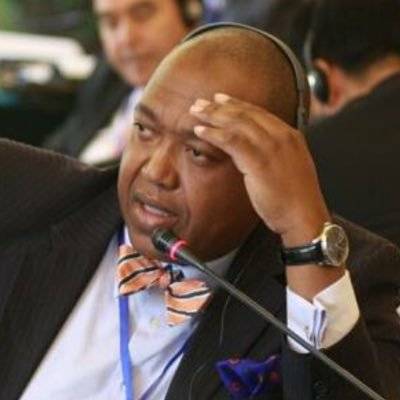There is never a dull moment in the politics of the Middle East, says the old adage, and this week has been no different. After a lot of speculation, it is now official; Mohammad Bin Salman, the 31 year-old son of the King of Saudi Arabia has become the crown prince of the kingdom, replacing his 57 year-old cousin Mohammad Bin Nayef. Bin Salman is now the second most powerful man in Saudi Arabia. The move is reminiscent of what happened in Jordan when the dying King Hussein, in his final days, announced on 25 January 1999 that his brother, the long-serving Crown Prince Hassan Bin Talal, was being replaced by his British-educated son Prince Abdullah.
Crown Prince Mohammed Bin Salman has held three very senior positions in his short political life. In 2013 he was the chief of courts before he was appointed minister of defence and deputy crown prince. The latter two positions bolstered his resolve to venture into one of the deadliest and protracted wars in the region, in Saudi’s southern neighbour Yemen. As minister of defence, he led a multinational coalition against the Houthis in Yemen in March 2015. Despite predictions that the might of the coalition would see the war cut short, it is still raging.
According to The Economist magazine: “Officials reel and outsiders regard him as a bullock in a china shop. What he lacks in experience and foreign travel, he compensates for with confidence, focus and a battery of consultants’ reports.”
Read: The Saudis may have bought our weapons, but should not have bought our silence
Bin Salman has not allowed such comments to discourage him. Soon after the Saudi-led coalition’s entry into the Yemen war, the government in Riyadh announced that he was to lead the ambitious privatisation of Aramco, the Saudi energy giant. Aramco is the mainstay of the Saudi economy and has been used to pursue the country’s deep pocket politics far beyond its borders. Riyadh has also used the vast wealth derived from Aramco to push its controversial version of Islam around the world. Britain’s Financial Times said that the privatisation of Aramco was a move “to boost employment and diversify the kingdom away from oil.”
However, sceptics doubt if this project is going to be realised given the state of politics and society in Saudi Arabia. Will the country be capable of such an overhaul when its people have “grown accustomed to the state providing cradle-to-grave services”? That is indeed one of the challenges that faces the kingdom; will the young crown prince, who has also been a victim of the trappings of a luxurious lifestyle while growing up, be able to discern what is right for his nation?
Read: Saudi-UAE divided over southern Yemen
The rise of Mohammad Bin Salman comes at a time when the coalition led by Saudi Arabia, the United Arab Emirates (UAE), Bahrain and Egypt continues to forge ahead with the economic and political blockade of the state of Qatar. The question in many people’s minds as the news of crown prince’s appointment broke on 21 June was to what extent the new reality will affect the current political fiasco. The optimists argue that maybe the possibility of solving Gulf crisis was already nigh given this development. Bin Salman might want to redeem and absolve himself from the debacle by calling for a dialogue, giving his tenure as crown prince a clean slate to start with. After all, the political spat against Qatar has been a global public relations disaster. However, should he decide not to take a reconciliatory stance and de-escalate the situation as suggested, others predict that there is likely to be even louder war drums sounding in the region.
#QatarGate
The Middle East is beginning to understand the impact of US President Donald Trump’s visit to Riyadh in May. “So good to see the Saudi Arabia visit with the King and 50 countries already paying off,” Trump tweeted on 6 June, the day after the Saudi-UAE-Egypt-Bahrain move against Qatar was announced. “They said they would take a hard line on funding and all reference was pointing to Qatar. Perhaps this will be the beginning of the end to the horror of terrorism.” This confirms how disastrous for the region his visit was.
It is foolhardy to think that the recent political developments with Qatar had nothing to do with Trump’s visit to Riyadh and Israel. The elevation of Mohammad Bin Salman is also indebted to the US president’s travel schedule, which has hastened the negative political impact and possible collapse of multilateralist politics in the region.
The Middle East faces a bleak future as the new Saudi-UAE-Egypt political axis develops in earnest. It is an axis that will be dominated by egos and personalities, devoid of national and regional interests. Consequently, there could well be renewed political tensions as those identified as “enemies” by the new axis ready themselves for the unknown.
The views expressed in this article belong to the author and do not necessarily reflect the editorial policy of Middle East Monitor.


![Mohammad bin Salman (C) attends a ceremony to crown him as the successor of the throne in Mecca, Saudi on 21 June 21, 2017 [Bandar Algaloud/Anadolu Agency]](https://i0.wp.com/www.middleeastmonitor.com/wp-content/uploads/2017/06/2017_6_21-Prince-Mohammad-bin-Salman-al-Saud20170622_2_24357736_23366947.jpg?fit=1200%2C800&ssl=1)









